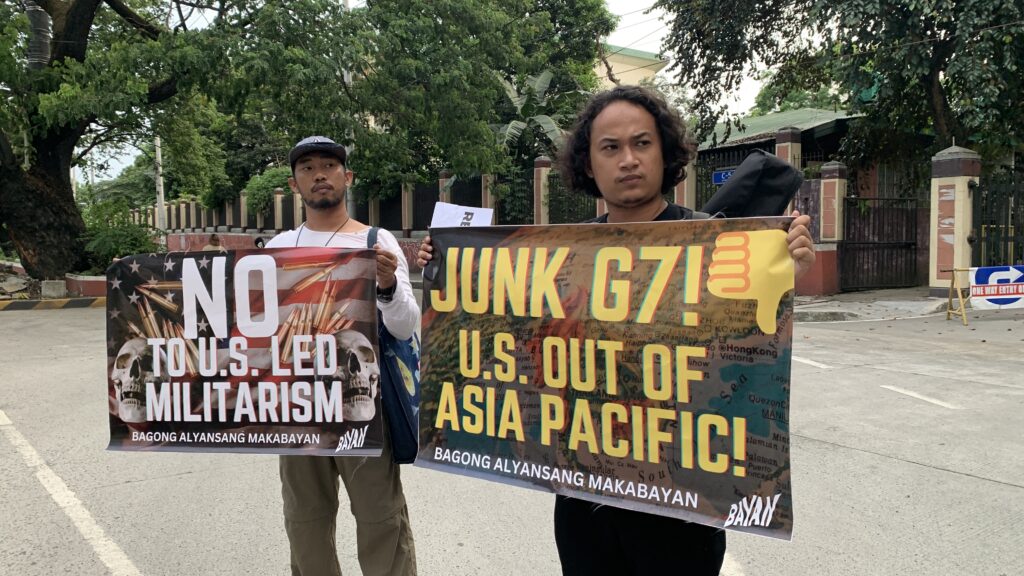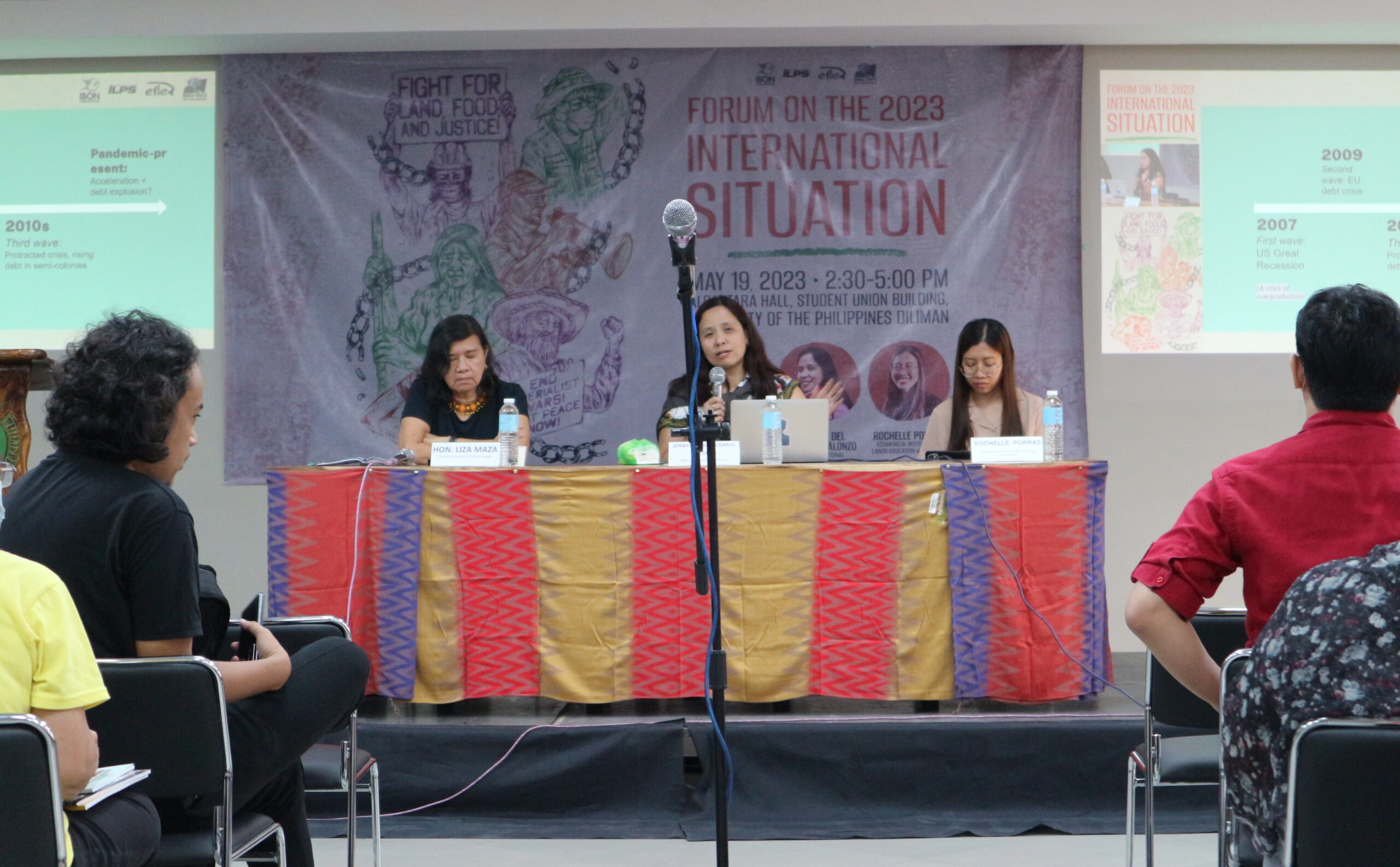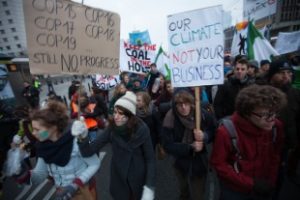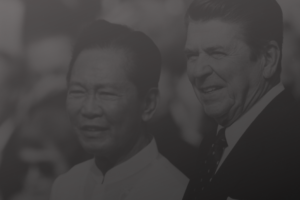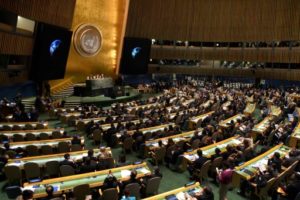In a forum held in Quezon City in the Philippines, social movements and civil society emphasised that the international situation, characterised by multiple crises and increasing US militarism and geopolitical competition with China, Russia, and other global powers create conditions for workers and social movements to strengthen their collective power to assert people’s rights and tackle systemic crises.
The Forum on the 2023 International Situation was co-organised by IBON International, the International League of Peoples’ Struggle (ILPS), the Ecumenical Institute on Labor Education and Research (EILER), and the National Network of Agrarian Reform Advocates-Youth (NNARA-Youth) University of the Philippines (UP) Diliman. IBON International’s new publication, “International Situation 2023: Recession, Rivalry, Resistance” was also launched at the event.
The forum parsed the interrelations and systemic roots of the multiple crises faced by peoples today. It also looked into the implications of conflicting interests among the United States, China, and other global powers.
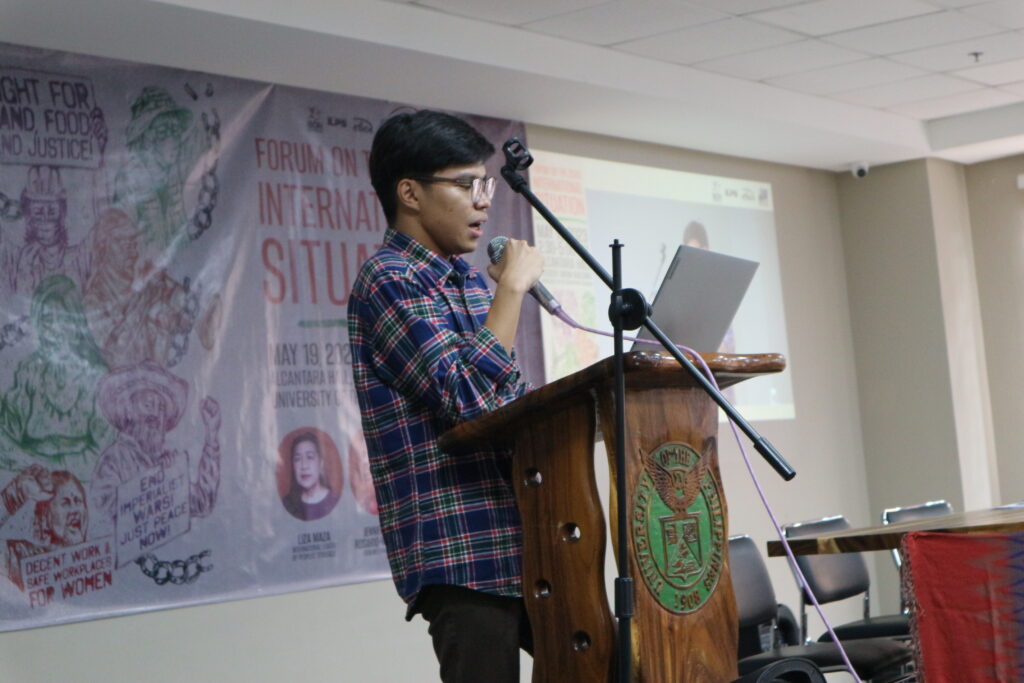
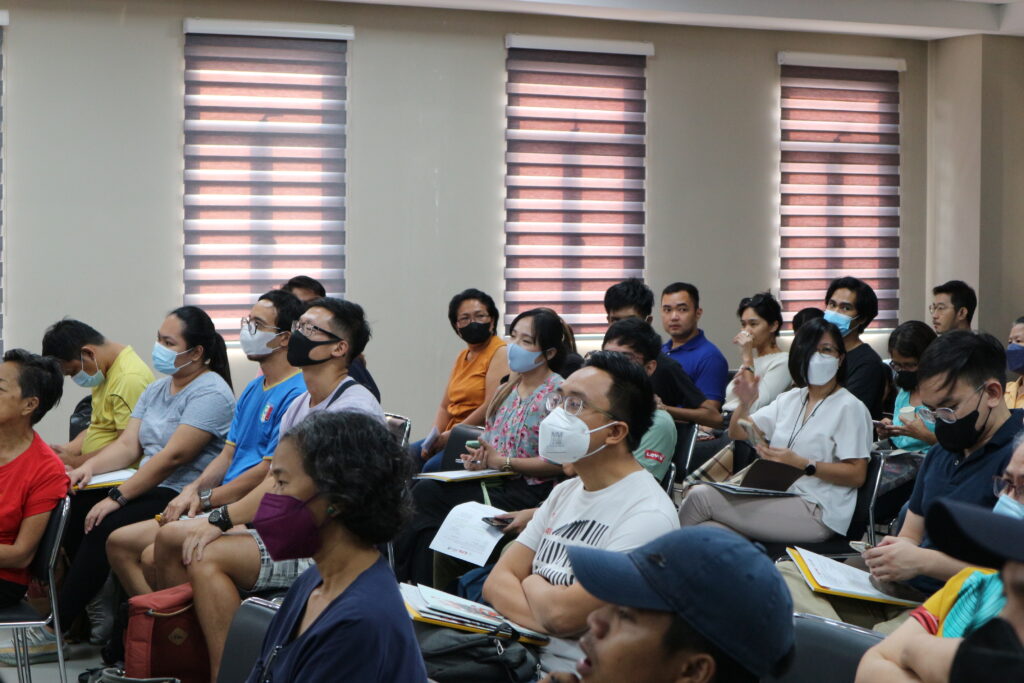
In photos: (1) Policy, Communications, and Training Team (PCTT) Head, Rodolfo Lahoy, delivered the opening remarks. (2) People’s organisations and civil society in the Philippines participated in the forum.
Jennifer del Rosario-Malonzo, the Executive Director of IBON International, unpacked how a global economy, based on the exploitation of resources and labour in the global South for corporate profit, generates crises. “The pandemic and the war in Ukraine accelerated crises that were already brewing. But the protracted crisis was already a characteristic of the world economic system in the years after the 2008 recession,” Malonzo said.
“For the majority, crises mean unbearable living costs and budget cuts in public services, while governments pay for public debt. Amid crises, monopoly capitalists are even creating ‘new markets’ to exploit for profit, from US Big Tech’s accumulation and profiteering from data, the digital economy, to the peddling of false technological fixes to the climate crisis,” she added.
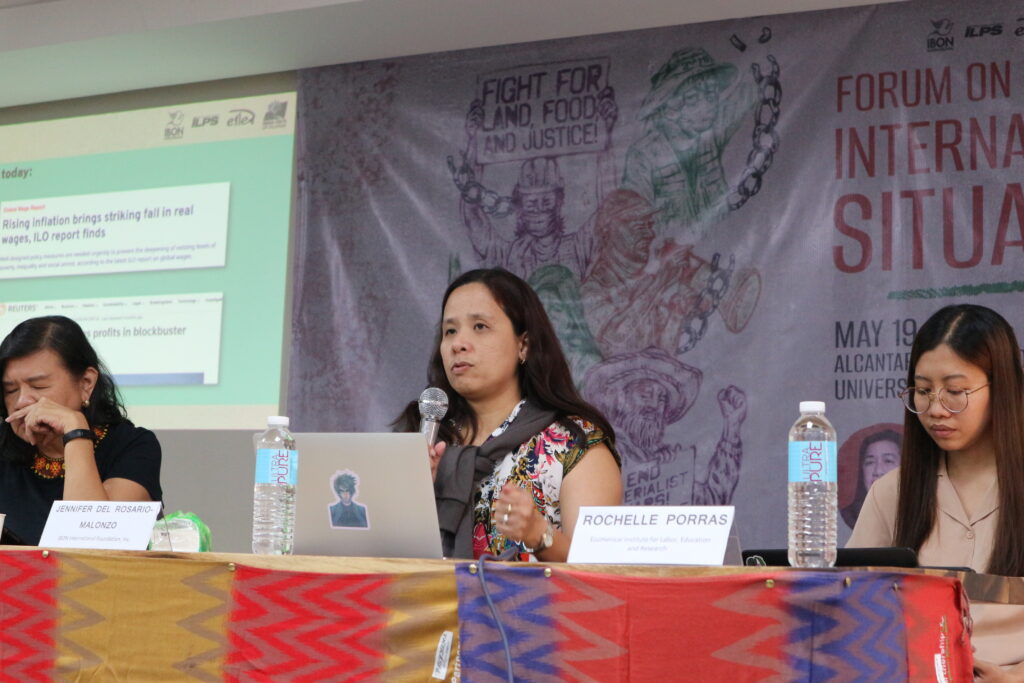
Liza Maza, the General Secretary of the ILPS, argued that competing economic and geopolitical interests of global powers, especially of the US, are driving wars and militarism. Maza expounded on the importance of the Asia Pacific to US economic interests, as “the fastest growing region of the world economy, an important source of raw materials and cheap labour, and site for investment, with a [vast market from its] population of 4.7 billion people.” Meanwhile, the disputed South China Sea is also crucial to China’s maritime trade.
Maza also stressed that the US and China’s economic rivalry are expressed through military aggression in the region. The war in Ukraine is another flashpoint of rivalry between global powers, with the US and North Atlantic Treaty Organisation (NATO) on one hand, and Russia on the other.
Maza concluded: “The post-Cold War unipolar world characterised by sole US dominance is eroding. We are now in a multipolar world where there exists other centres of power, like China and Russia. But history and our current realities show that the US remains the most aggressive and plunderous imperialist country.”
The US remains the world’s top military spender with USD 877 billion expenditure in 2022, even exceeding the combined expenditure of the next top ten countries by military spending. In 2021, US arms companies accounted for more than half of the world’s total arms sales. It maintains around 750 military bases in at least 80 countries. The US also exercises its power through its post-9/11 “War on Terror” and aggressive sanctions.
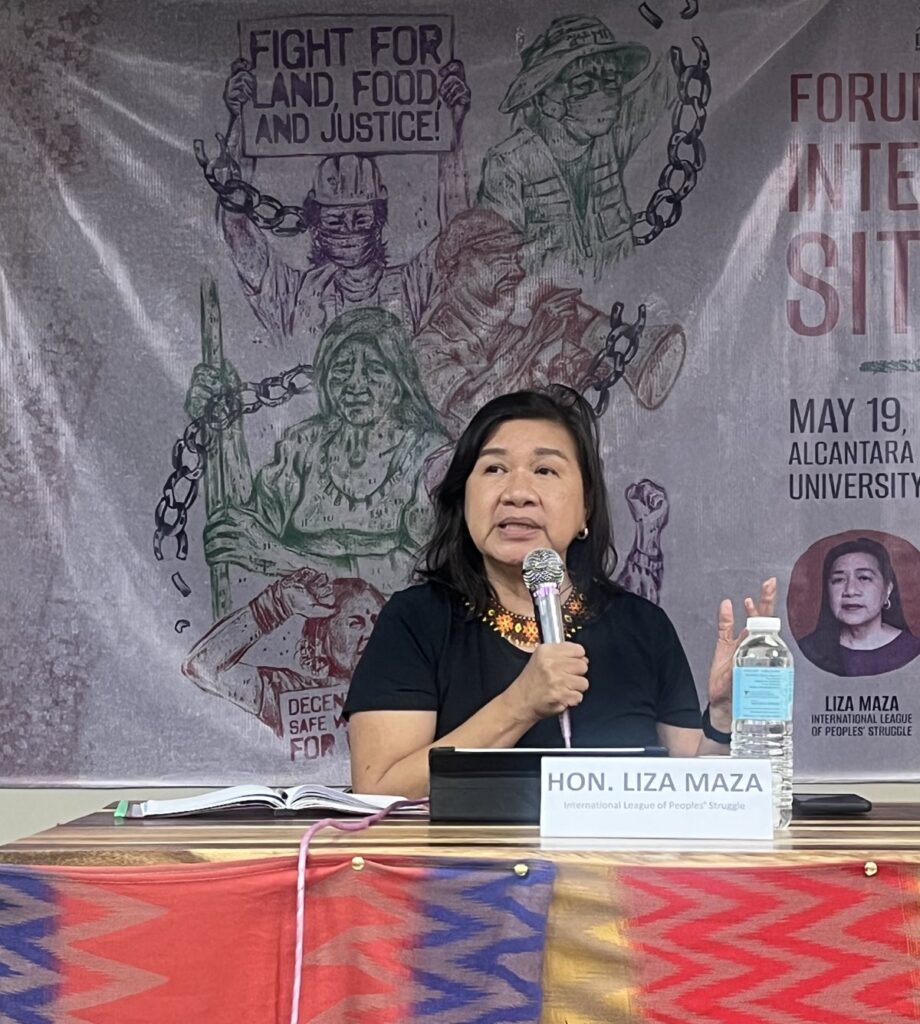
Rochelle Porras, the Executive Director of EILER, focused on the plight of workers under prevailing neoliberalism in 2023. “There is a stark contrast between the growing wealth of capitalists in the US and the rest of the global North, and the historical decline in workers’ wages, especially in the global South. Neoliberal policies, such as labour flexibilisation and deregulation of wages, imposed by the IMF and World Bank for decades, have created these realities,” Porras said.
Porras also highlighted the importance of strikes and actions to realise demands for economic and democratic rights. “By unionising, workers are able to realise their collective power to defend and fight for their rights to living wages and better working conditions,” she said. Unionisation, strikes, and people’s actions have expanded across the world, with estimates showing at least 12,500 protest events in 148 countries against high energy and food prices in 2022.
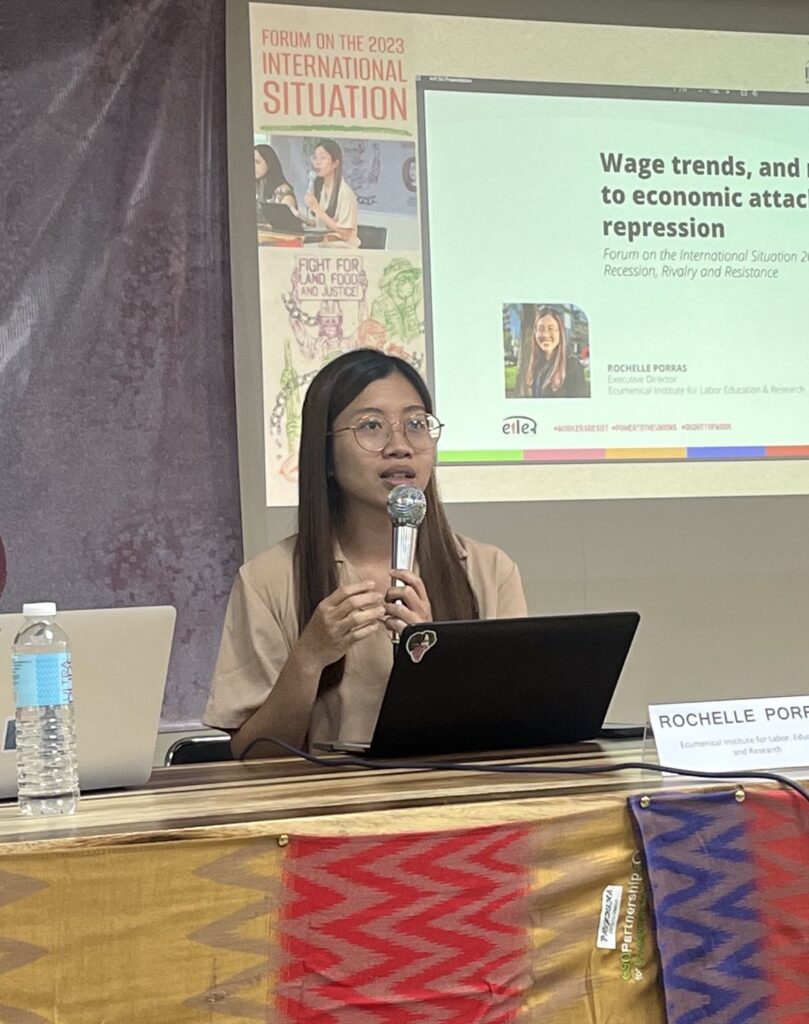
The forum also called for support for the workers’ strike at a Nestlé-owned Wyeth Nutrition factory in Canlubang, Laguna province, southern Luzon region, as 145 workers were suddenly laid off by the corporation. The striking workers were members of the Wyeth Philippines Progressive Workers Union.
After the forum, Bagong Alyansang Makabayan (BAYAN, New Patriotic Alliance), a multisectoral formation that campaigns on national economic and political issues, led a demonstration against the recent Group of Seven (G7) Summit in Hiroshima, Japan. Social movements voiced out concerns about increasing militarist aggression and foreign economic dictates wrought by the US and other G7 members (Canada, France, Germany, Italy, Japan, and the United Kingdom). #
Access the paper, “International Situation 2023: Recession, Rivalry, Resistance”
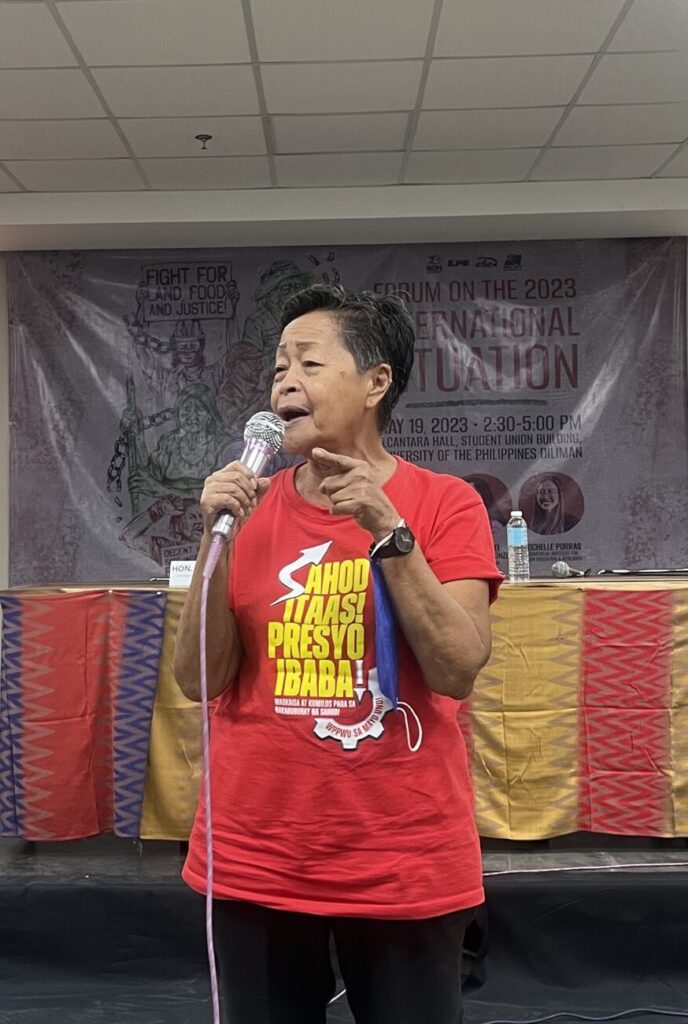

In photos: (1) Nita “Ka Nitz” Gonzaga called for support for the workers’ strike at a Nestlé-owned Wyeth Nutrition factory. (2) IBON International Board of Trustees member, Atty. Edwin Dela Cruz, closed the program.
